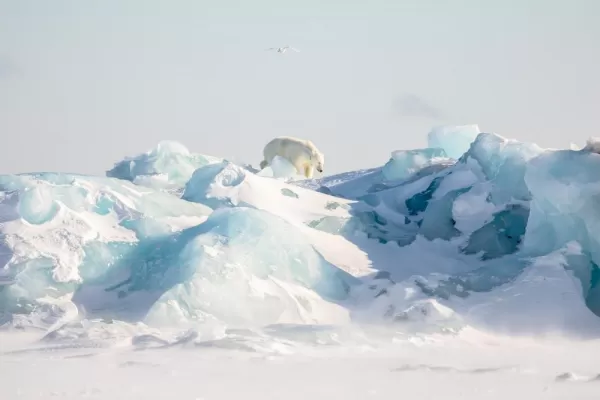An icy breeze touches your exposed cheeks. The scent of snow and sea fills your nostrils. Sunlight reflects off the floating ice, illuminating the clouds overhead. Enter an environment like no other, the vast shape-shifting realm of floating ice that crowns our planet. The vast ever-changing ice pack to the north of Svalbard stretches from this already isolated archipelago to the North Pole, and onwards across the Arctic Ocean towards the northern shores of Chukotka and Alaska.
The Arctic ice pack is one of Earth's largest habitats, although unlike most it varies hugely year on year, expanding in winter and retreating in summer. The location of the sea ice around Svalbard can also vary wildly - however, your Expedition Leader will work hard to maximize our chances of finding and exploring this impossibly remote environment. At first glance, this stark white wilderness seems barren, empty and lifeless. This icy wilderness holds on to its mysteries, and of course, wildlife sightings are at the whims of Mother Nature. With a little perseverance, however, the ice reveals its secrets.
As Ocean Albatros pushes through the narrow channels in the ice, tiny cod-like fish can be seen silhouetted against the ice in the clear water. Kittiwakes and Gloucous Gulls follow the vessel as it disturbs the water. Further out on the ice, black dots appear; moving closer, they resolve into seals, basking on the ice. A plume of water reflects the sunshine - a pod of belugas perhaps, or maybe even the vast gentle bowhead whale crushing the ice from below as its massive body surfaces. There, beyond the banks of rucked ice - a yellowish dot pads along the ice, the head swinging from side to side: the King of the Arctic continues his never-ending quest for prey. This is the kingdom of the polar bear, the vast icy waste at the top of the world.
At the end of the day, we will start cruising towards the Hinlopen Strait that divides Spitsbergen and Nordaustlandet.





































